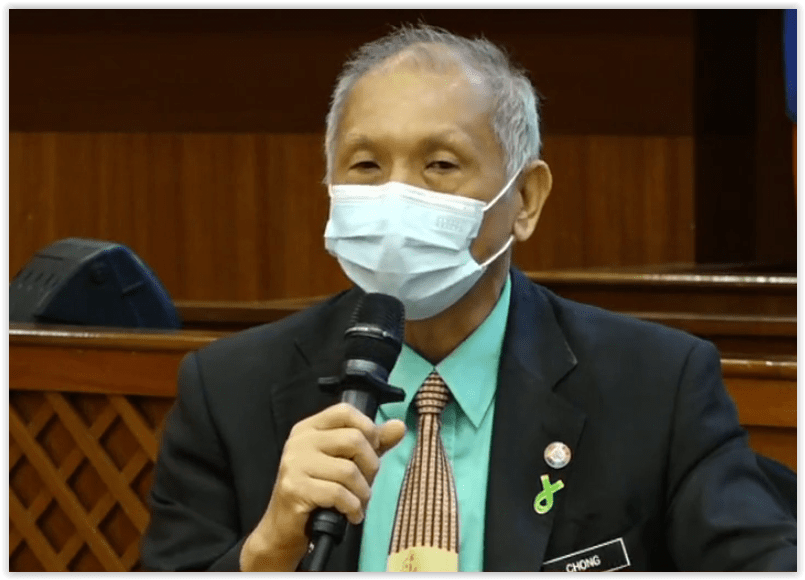KUALA LUMPUR, Sept 7 — The Greater Klang Valley Special Task Force (GKVSTF) is expected to disband as early as next week amid the declining Covid-19 outbreak in the industrialised region.
GKVSTF chairman Dr Chong Chee Kheong, who is also Health deputy director-general, said a request has been submitted to Health Minister Khairy Jamaluddin for the September 15 dissolution of the task force.
“The GKVSTF was set up to tackle the burden of surging Covid-19 cases on the health system in Greater Klang Valley. We managed to increase the bed capacity, which includes not only beds but also oxygen, related equipment and manpower. At the same time, we managed to reduce the crowd at the Covid-19 Assessment Centres (CAC) by setting up the virtual CAC and enhancing the role of the community leaders.
“Now that the stress to the health care system is reduced, the next step is to start normalising the services in the hospitals. This role, as well as ongoing management of the Covid-19 pandemic, will be by the medical programme.
“As such, we have submitted a request for the dissolution of the task force to the health minister as the mandate of the task force is from the former prime minister through the health minister,” Dr Chong told CodeBlue when contacted today.
He added that assets acquired by the GKVSTF — such as oxygen cylinders, oxygen concentrators, and pulse oximeters — will be sent to states that are now facing rising Covid-19 case numbers as infections drop in the Klang Valley.
When asked if it was “mission accomplished” for GKVSTF, Dr Chong said: “With the vaccination coverage getting much better, I don’t expect the Covid situation to deteriorate to levels like before.”
The Klang Valley has fully vaccinated about 71 per cent of its total population against Covid-19 to date, the highest in the country with a national average of 49 per cent.
The GKVSTF was formed on July 8 under the Ministry of Health (MOH) about a week before the federal government launched Operation Surge Capacity to accelerate the Covid-19 vaccine rollout in the Klang Valley (Selangor, Kuala Lumpur, and Putrajaya).
The task force was given the mandate to make swift decisions at ground level to alleviate stress on Klang Valley hospitals. This included the procurement of equipment and mobilisation of resources such as manpower, oxygen supply, and intensive care (ICU) beds.
Between the end of June and early August, the Klang Valley struggled with a surge of infections that overwhelmed hospitals to the point of health workers comparing the crisis to the peak of India’s epidemic.
Daily Covid-19 cases soared to a high 11,397 on August 6, with infections in the commercial region contributing up to 65 per cent of daily total cases at its peak. On September 6, Klang Valley made up less than 15 per cent of 17,352 total cases nationwide.
Klang Valley’s daily Covid-19 deaths, however, have risen from 53 on July 1 to 84 deaths on September 6. It hit a record high 264 deaths on August 8. By proportion, the region’s Covid-19 daily death percentage against the national tally reduced from 63 per cent to about 31 per cent on July 1 and September 6, respectively, as daily coronavirus deaths climbed in poorly vaccinated states such as Sabah, Kedah, Penang, Kelantan, and Johor.
Total hospital admissions, hospitalisations, and ICU occupancy in the Klang Valley have all declined from their respective highs in July and August.
Daily Covid-19 hospital admissions have fallen from a high 1,039 cases on July 30 to 402 cases on September 4, down 61 per cent, while currently hospitalised cases have contracted by nearly 53 per cent from 6,250 cases on August 8 to 2,949 cases on September 4.
Klang Valley’s daily ICU occupancy rates have also declined from a high 713 on July 13 to 441 on September 4, although ICU bed occupancy in Selangor remains critically high at 96.72 per cent. In Kuala Lumpur and Putrajaya, daily ICU occupancy rates are at 70 per cent and 50 per cent, respectively.
While Klang Valley’s accelerated vaccination rate proved crucial in bringing figures across all key indicators down in the past month, mitigation strategies under GKVSTF helped to reinforce the region’s health care system.
The GKVSTF Playbook, a documentation project led by Dr Jemilah Mahmood, revealed how the task force created a systemic pandemic response within the Klang Valley involving a wide range of stakeholders from the military to the private sector and civil societies.
The collaborative approach allowed various aspects of crisis management to be spread out and not be left to the MOH to solve alone. This eventually led to the formation of a virtual Covid-19 Assessment Centre (CAC) that currently monitors thousands of Covid-19 cases under home quarantine in the Klang Valley, actively decants non-Covid patients to private hospitals, and created a real-time live dashboard that allowed GKVSTF to quickly identify admission and discharge patterns to know if beds are sufficient and are readily available for patients.
Points in the GKVSTF playbook were recently shared with health authorities in Sabah and the southern state of Johor. CodeBlue understands that Sabah will be setting up its own special task force, based on the GKVSTF model, which will include military and external experts.








